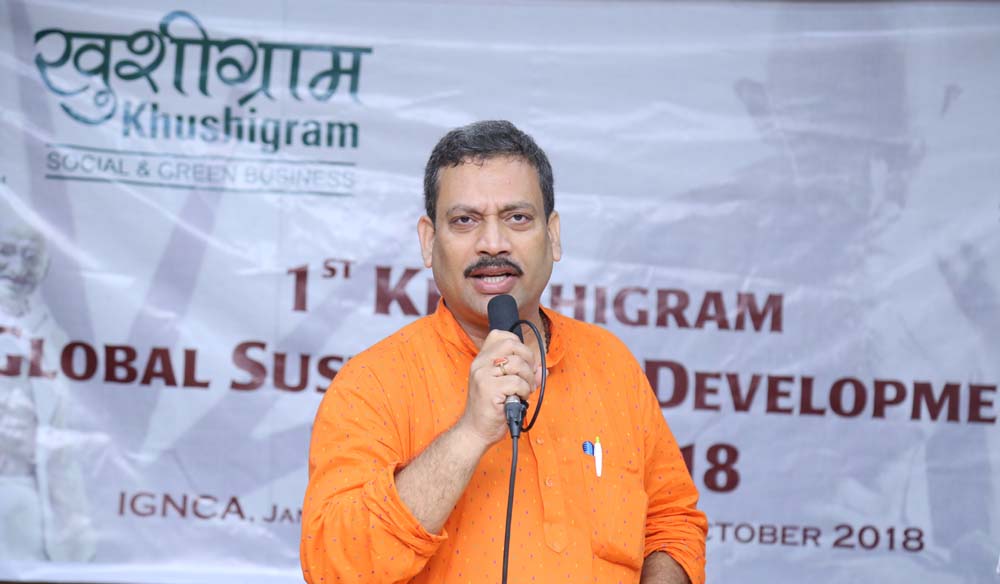Khushigram working on cluster based approach to achieve Sustainable Development Goals
Khushigram was founded in 2012 after years of
discussions, debates and deliberations and integrating the traditional and
model knowledge systems and wisdom from all across the world. Khushigram combines
"Khushi" (happiness) and "Gram" (village). Khushigram is a
vision of development centered around well being and sustainability.
Sustainable development in Khushigram involves initiatives like eco friendly lifestyle
(LiFE or Mission LiFE as our Prime Minister says), sustainable agriculture, animal husbandry and food
processing, renewable energy, access to holistic education and healthcare, and
fostering community participation in decision making processes. It also includes
classical and folk arts, craft, culture, heritage and tourism activities for
rejuvenation and relaxation as well as bonding and strengthening relationships,
understanding, collaboration and cooperation.
In short, the goal is to create a holistic
environment where economic, social, and environmental needs are balanced to
ensure long term peace, prosperity, health, happiness and harmony for residents,
including the plants and animals.
Sustainable development in India is crucial due to its rapidly growing
population and increasing environmental challenges. Key initiatives include:
Energy: Investing in bioenergy,
solar, wind, and other renewable energy sources to reduce reliance on fossil
fuels and mitigate climate change is important. This, coupled with improving
lifestyle (using natural light and heat optimally) and energy efficiency will
significantly help in restoration of the environment.
Agriculture & Allied Activities: Promoting natural
and organic farming, climate and solil friendly crops, multi layer cropping and
crop diversification to ensure food security while preserving natural resources
and native seeds, Animal Husbandry (with indigenous cattle breed) and Food
Processing, water conservation techniques like drip irrigation.
Waste Management: Implementing
effective waste management systems, including reducing consumption, packaging
and production, reusing and extending the lifecycle of products focusing on
circularity, recycling solid and liquid waste and composting, to reduce
pollution and improve public health.
Rural & Urban
Planning: Developing sustainable villages and cities with efficient public
transportation, green spaces, and energy-efficient buildings with sustainble
materials to reduce emissions and enhance livability.
Biodiversity
Conservation: Protecting forests, wetlands, and other ecosystems to preserve
biodiversity and ecosystem services essential for human well-being.
Education and
Awareness: Raising awareness about sustainable practices and empowering
communities, businesses, and governments to adopt environmentally friendly
behaviors.
Policy Framework: Enacting and
enforcing policies that prioritise sustainability across sectors, including
industry, transportation, and urban development and use proper incentves and
disincentives, measuring and rating Sustainable Development and Natural
Resources Footprint and their audit from individual to village/ward, sub
district, district, commissionary, state and national level.
By focusing on these areas, India can achieve sustainable development, balancing economic growth with environmental protection and social equity for current and future generations.
Adopting Khushigram’s
cluster based approach can speed up the implementation of Sustainable Development
Goals (read next article tomorrow).
The author is Founder, Khushigram: Vision 2030 for sustainable Development, & MD, Khushigram Foundation, a Thought Leader, Writer, Speaker, Planner, Integrator and Implementor.
He has been looking and working on the best solutions for 42 years now and needs support
of all of you because he believes says, “I can be happy only when everyone
around me are also happy.”


